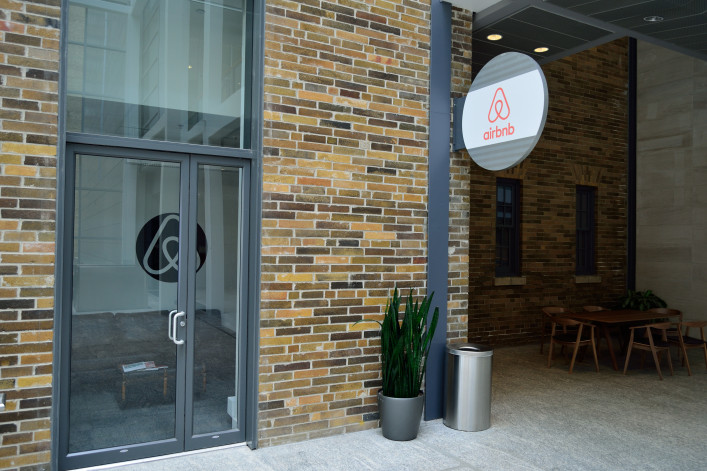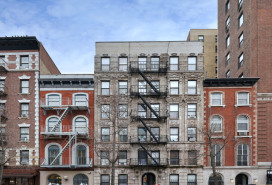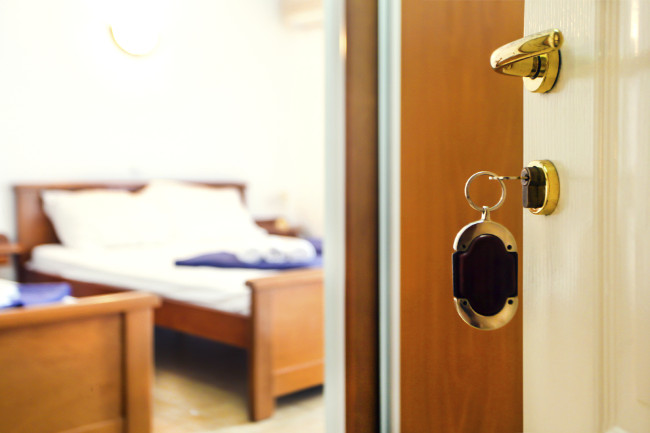Real life stories of Airbnb racism—and how some people are responding

A spate of recent complaints about discrimination among Airbnb hosts is undercutting the short-term rental company’s “core idea” of belonging. Would-be renters—who must create profiles that include their names and photographs—have been coming forward to share stories of having their rental requests rejected by hosts, ostensibly based on race, sexual orientation, and gender identity.
In one particularly abhorrent example, the New York Daily News reports that after refusing a room request from a Nigerian student, a North Carolina man messaged her with a string of racial slurs. And according to the Daily Dot, a transgender woman was told that she couldn’t stay in a host’s home because she might make the host’s young son uncomfortable.
Airbnb’s CEO responded to the North Carolina man with a tweet condemning his behavior and banning him from the site. However, the transgender woman, a television writer and producer named Shadi Petosky, told USA Today that when she shared the exchange with Airbnb, the company failed to intervene, and in fact even granted the host “super host” status later.
The incident in NC was disturbing and unacceptable. Racism and discrimination have no place on Airbnb. We have permanently banned this host.
— Brian Chesky (@bchesky) June 1, 2016
Airbnb has faced considerable opposition in NYC where, as Gothamist points out, it is illegal under a 2011 law to rent apartments for less than 30 days. Critics argue that doing so depletes the city's housing stock, by taking rooms that might otherwise go to permanent residents off the market. And when it comes to the city's Fair Housing regulations, which forbid housing discrimination, Airbnb hosts who discriminate may be on the wrong side of the law, as well. Neil Garfinkel, an attorney with Abrams Garfinkel Margolis Bergson, LLP and broker counsel for the Real Estate Board of New York, says that the city's fair housing laws apply to rentals and sales, and outlaw discrimination based on someone being part of a protected class.
The exception, Garfinkel says, is for owners of two-family homes, who are legally permitted to be choosy with whom they rent to--for example, they can state that they don't want to rent to a family with children--provided that they do not make the listing public or advertise.
"So what Airbnb hosts are doing is making it public, and clearly advertising, so I would say that don't have the right to do that," Garfinkel says. A person who suspects that they were discriminated against by an Airbnb host "could call the NYC Human Rights Commission and file a complaint," he adds.
Meanwhile, Public Advocate Letitia James has taken a stance against discriminatory hosts in NYC, CBS reports, by asking Airbnb to update its policies to protect New Yorkers from discrimination. But prospective renters who find the company unresponsive might be better off taking the issue to the city.
Rohan Gilkes, a tech entrepreneur, found Airbnb unresponsive after he was rejected by a host, who later accepted a white friend for the same dates he’d requested. It was only after he shared his experience on Medium and the story went viral that the company responded to his complaint, he says.
Those who have had similar experiences to Petosky and Gilkes have rallied around the Twitter hashtag #AirbnbWhileBlack, painting an unflattering portrait of a sharing economy that’s out of touch with problems of marginalization and bias.
Declined, Declined, Decline #Airbnbwhileblack @Airbnb
— SimplyUnderestimated (@Godsveryownn) May 24, 2016
My assistant told me that she sometimes books me for air bnb and the person cancels us then puts the house back online #AirbnbWhileBlack
— Boyce Watkins (@drboycewatkins1) June 4, 2016
These stories are not random or rare: CityLab reported last month that a Harvard study revealed African-American guests are 16 percent less likely to be approved by Airbnb hosts. And now, entrepreneurs like Gilkes are responding by launching their own travel start-ups.
Gilkes is behind Noirebnb, a short-term rental platform that he describes as more all-embracing than Airbnb. (Another service with a similar name—Noirbnb—will also launch soon.) “I try to reinforce that we’re looking to include everybody,” he says. “It’s a space for people to feel safe and comfortable, and travel with dignity.”
Airbnb, for its part, could start rectifying the problem on a small scale, Gilkes says, by simply responding to complaints about discrimination: “The bare minimum should be to contact the person, show some empathy, try not to marginalize, listen with an open mind, and investigate. That’s not what I got when I called, and that’s what led to me to use my own resources to pursue a new platform.”
Airbnb published a blog post in May addressing reports of discrimination, in which the company’s director of diversity, David King, writes that the company is “confronting an age-old problem.” The post further cites Airbnb’s unconscious bias training programs, which have been shared with 5,000 hosts, as well as its plans to strengthen training on how to identify discriminatory behavior for customer service reps.
But identifying discrimination can be quite tricky: When Eric Jost tried to book an Airbnb rental in Miami, he mentioned in his message to the host that he’d be traveling with his husband. “Within five minutes, I had a one line response saying the owner would not accept the booking,” Jost says. “My immediate reaction was, this is personal bias—but it could certainly be random.”
This ambiguity leaves many travelers wondering whether they’ve been rejected based on their identity, or just simple logistics. Gilkes cites misterb&b, a rental platform specifically for the gay community, as a model for his own service and a way of mitigating such troubling questions. “Given this community of people, part of how they live their lives is to navigate these things and always have that doubt and that weight on them, and these services remove that weight,” he says.
To those who lament the proliferation of separate services for different groups of people, Gilkes responds that he also finds the situation unfortunate: “I understand that sadness. But at some point we have to live within the real world.”
He mentions the advent of HBCUs—historically black colleges and universities—which were established to give African Americans better access to higher education and act as a corrective in an unequal society. “Maybe there will be a time when we won’t need these types of controls, but we’re not there yet,” Gilkes says.
You Might Also Like

























